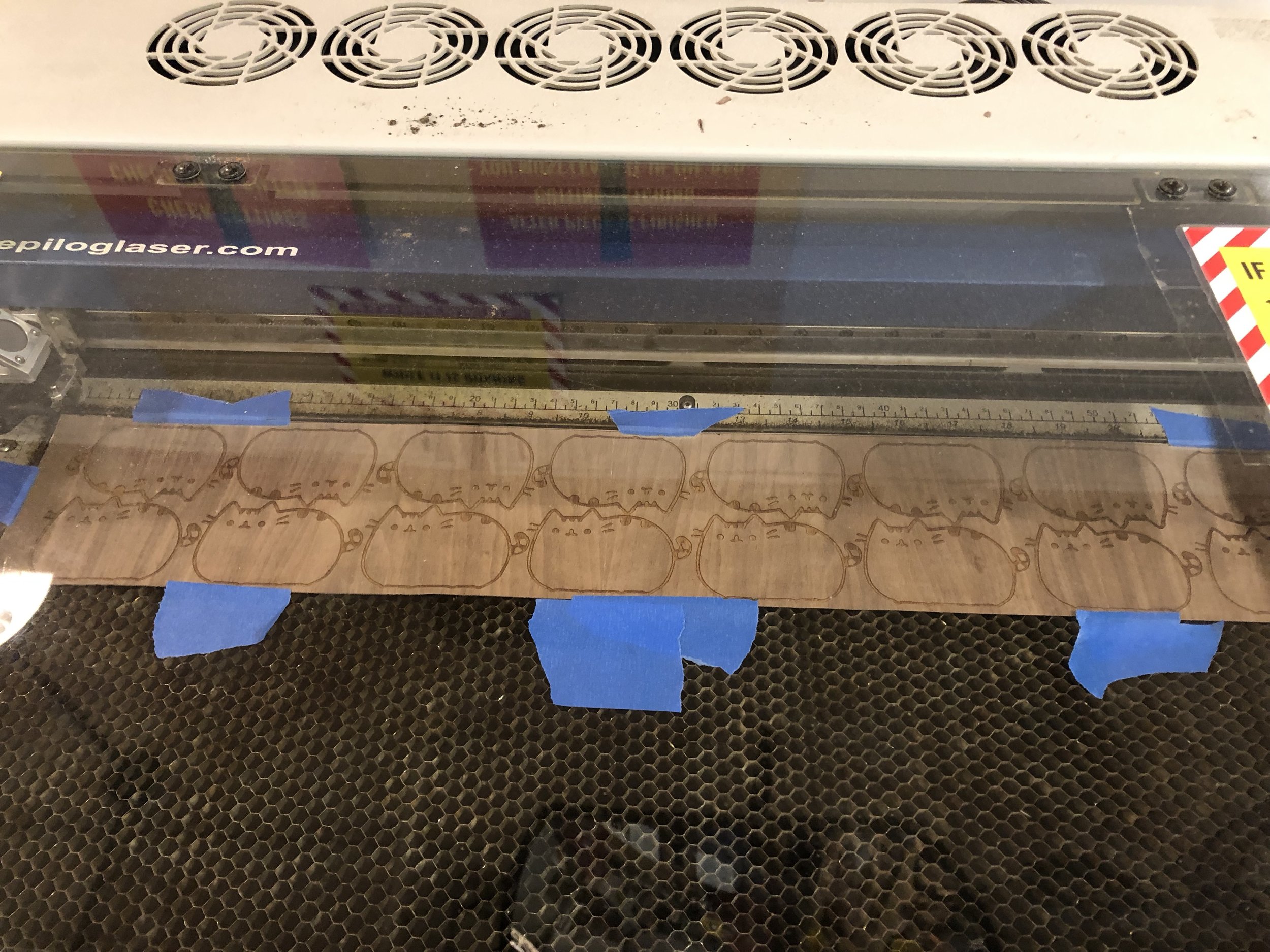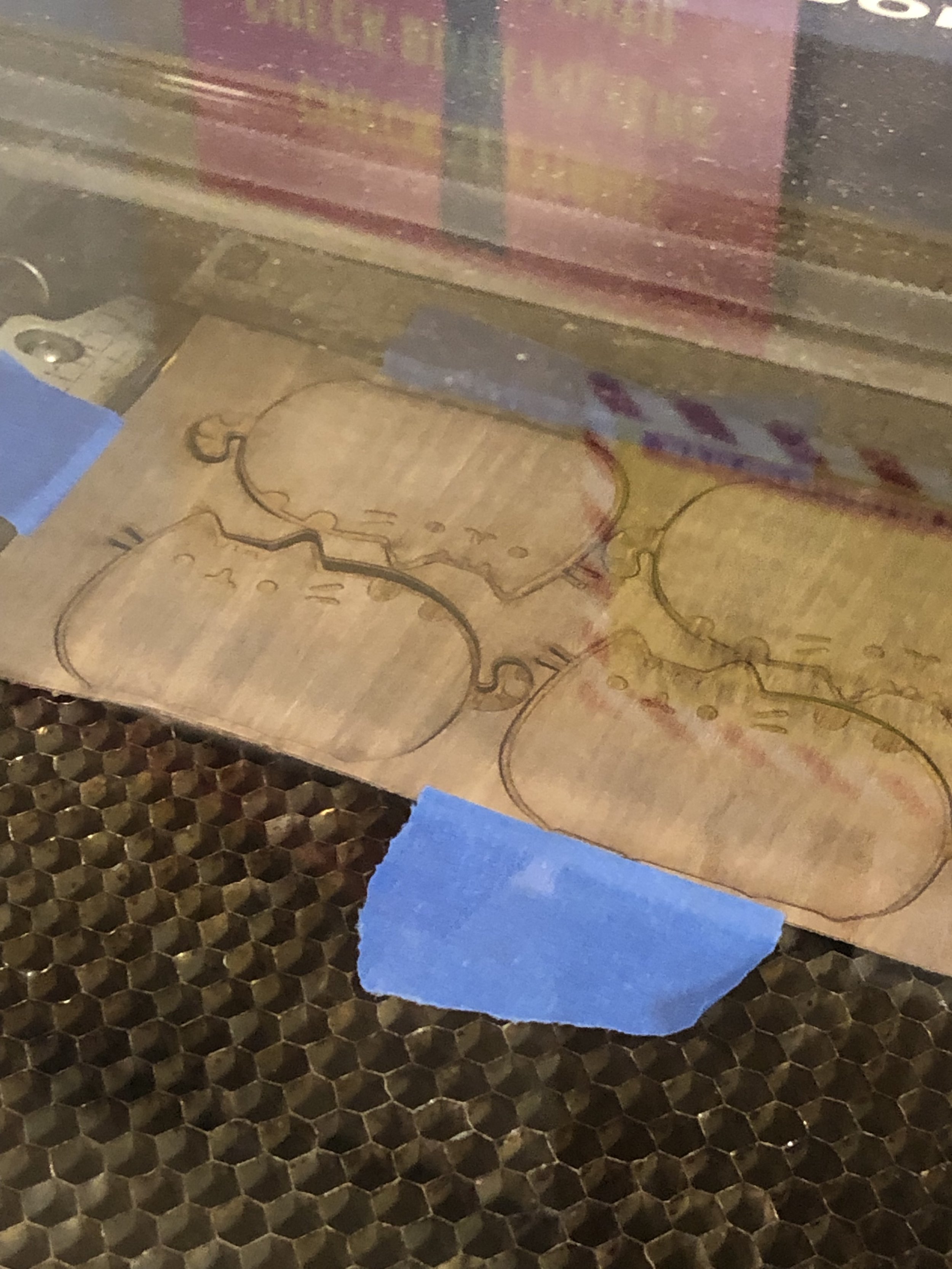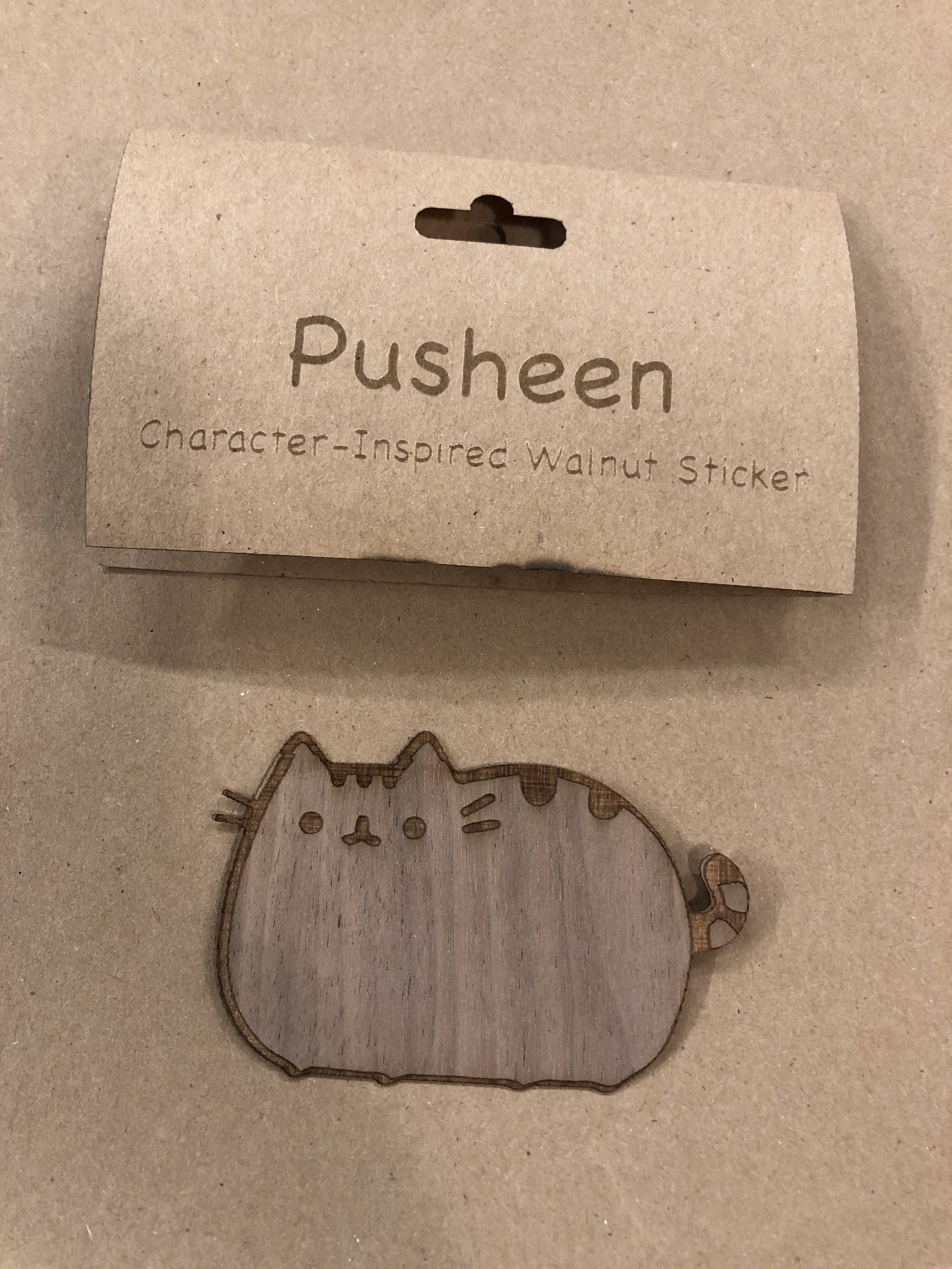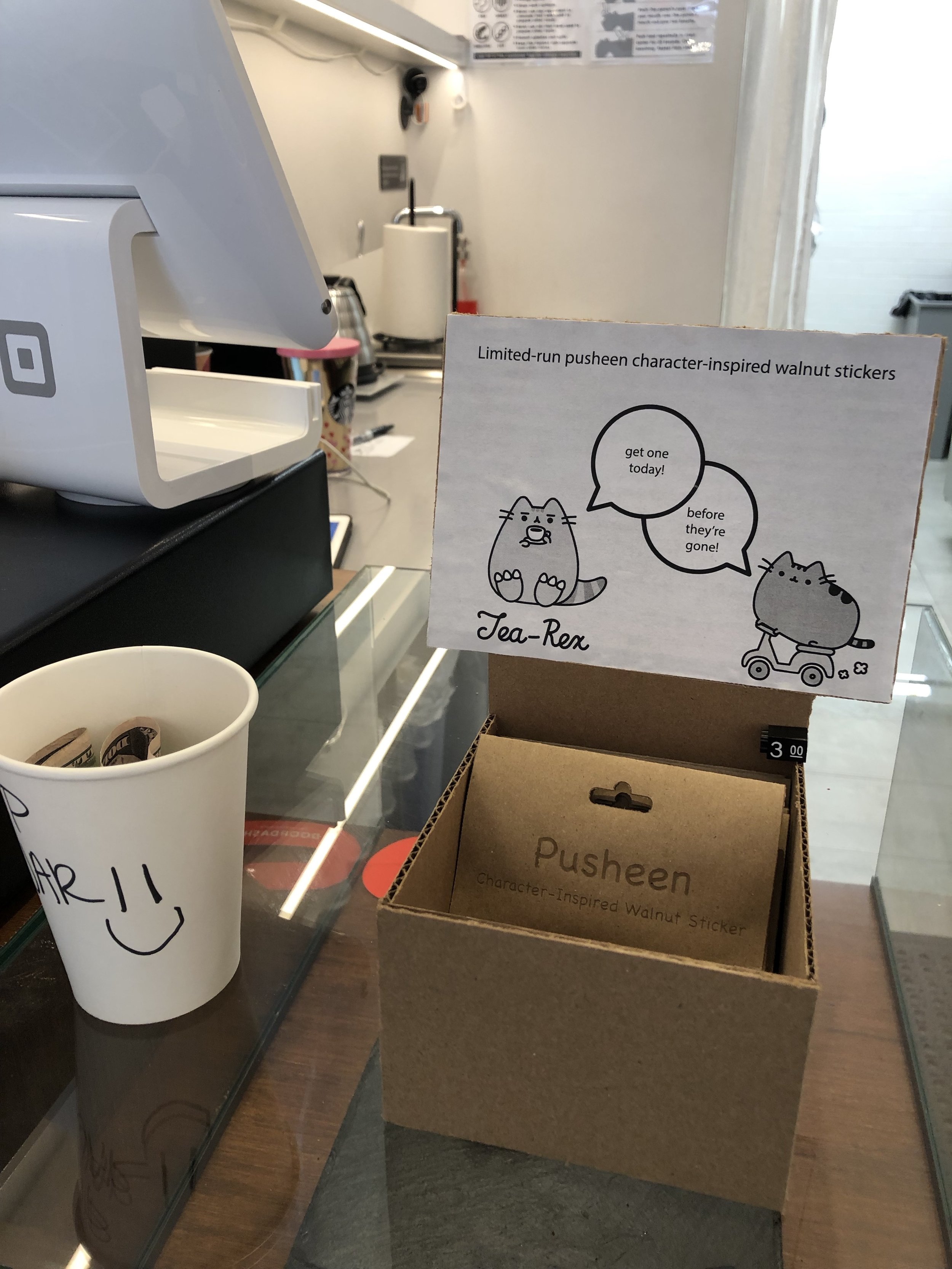This week in Fandom we were tasked with creating a commodity for profit for the time over Spring Break. I had purchased wood veneer from amazon a few weeks prior for another project and immediately though of creating Pusheen stickers out of the veneer via the laser cutter. I partnered with Lillian Ritchie and set out to get them produced as quickly as possible.
While I got the laser cutter formatted, Lilian made the labels (sourcing the closest font to what the Pusheen team uses and created a header label for us to package the stickers in. I also went to the party store down the street and procured plastic party bags to house the sticker in. I used the craft paper in the shop and quickly put together 15 packaged stickers to sell. I did a quick equation and noted that I had only used about $4 worth of wood and spent about $2.50 on the bags. So Initial upfront cost of about $7.
Initially, I was going to take them down to a few consignment streetwear shops I have been frequenting in soho and then remembered that my friend Jacky Chen had a tea shop called Space 194 near school and I thought that this would totally fit his demographic so asked if I could place in his shop and if his team could sell on my behalf. I halfway expected for them to take some sort of cut, but they didn’t. We priced the stickers at $3, and sold a total of 4, equalling $12 in gross profit. There was one lifted. I had given all staff a sticker (3 in total) and still walked away with a $5 net profit after sales and give-a-ways.
Our reading this week — Star Trek Reruns - Reread, Rewritten: Fan Writing as Textual Poaching by Henry Jenkins takes us into the realm of fan fiction derived from fan text that tends to follow a rebellious nature — at leas in the fan’s eyes towards their wants and desires, sometimes even making money off of the fan object.
The author introduces the concept of poaching where fans take the intellectual identity of the fan object and create something entirely outside of the direction of the fan text. In this context the fans (identified mostly as women in this context) are taking the story line of the fan text and altering it to suit their own needs and desires — either simply put a way to process simple happenings in their lives or even overtly conceptual desires or fantasies that they want to see in the characters that they have gotten to know so well.
I think there’s a discrepancy in the ratio of men to women who participate in these types of work to be honest. I spoke with a male friend who writes fan fiction under a woman’s name. From what he shared the community is very populated with the same like-minded ideas. I see this as something that potentially is misunderstood across the academic world and a limitation of the research performed.
The exceptionalism and wish fulfillment that is contrived in the production of fan-fiction — especially the ‘mary-sues’ that the author refers to — are totally far fetched and seem to stretch the storyline beyond the intention and the assumptions of the creators. I can’t really relate to the desires to create fan fiction, unfortunately. I don’t see the point of spending the time to create and extend or change a storyline made by someone else — regardless of connection to the show, book, or film. I suppose I’m a purist, and appreciate the time and direction that goes into original content creation in general. But until next week, I can honestly say I would have never written nor considered contributing to fan fiction in my life.
x.









